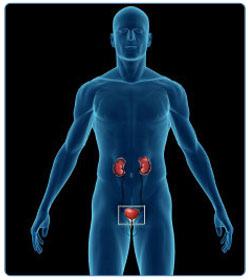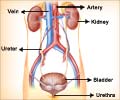Frequently Asked Questions
1. Which Doctor Should I consult for Ureterostomy?A urology specialist can be consulted for ureterostomy. After the surgical procedure, an entero-stomal therapist or a WOC (Wound, Ostomy and Continent) Nurse can help in the care and maintenance of the stoma and the pouch.
2. Do I need to wear special clothing if I am wearing a urostomy pouch?
Modern pouches are designed to lie flat against the body and are not much noticeable when you wear normal clothing. The pouch is attached to the body with a belt around the waist and sometimes a cotton pouch cover is given to keep the plastic pouch from resting against the skin. Cotton knit or stretch undergarments can be worn to cover the pouch and provide support. Very tight clothing may show the shape of the pouch underneath.
3. Which is a better option of ureterostomy - Ileal conduit, cutaneous ureterostomy or internal continent reservoir?
The urologist or the surgeon is the best person to decide on the choice of the procedure. This will depend on the disease that needs to be treated, age of the patient, the kidney function and if there are any associated physical disabilities.
The surgeon may give choice of more than one procedure to the patient and discusses the pros and cons of each procedures and allow the patient to decide.
4. Can I enjoy water sports and other sports after urinary diversion surgery?
Swimming and other water sports are also possible after the healing of the stoma. However, contact sports such as football, karate and wrestling must be avoided.
Avoiding any kind of strenuous physical activity is advised for the first 4 weeks after urinary diversion surgery. Once the stoma has healed, normal activities can be resumed.
5. Should I follow any particular diet after ureterostomy?
Patients can resume their normal diet after urinary diversion surgery. Some foods that cause stronger odour in urine may be avoided if required. Some patients may require taking bicarbonate tablets and vitamin supplements for the rest of their life. Drinking 8 to 12 glasses of water or atleast two liters a day can help in preventing infection. However this intake will depend on the residual kidney function.








